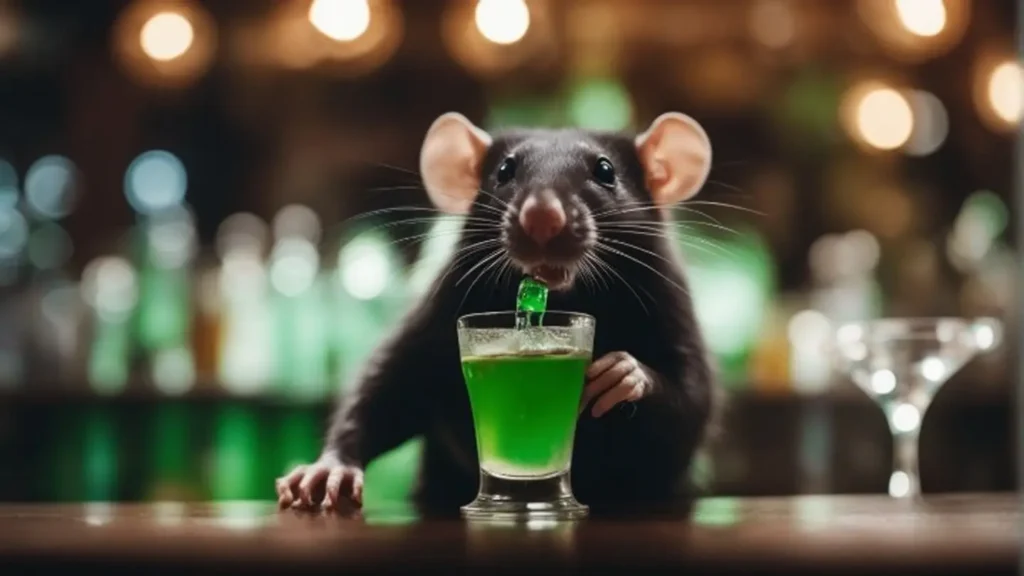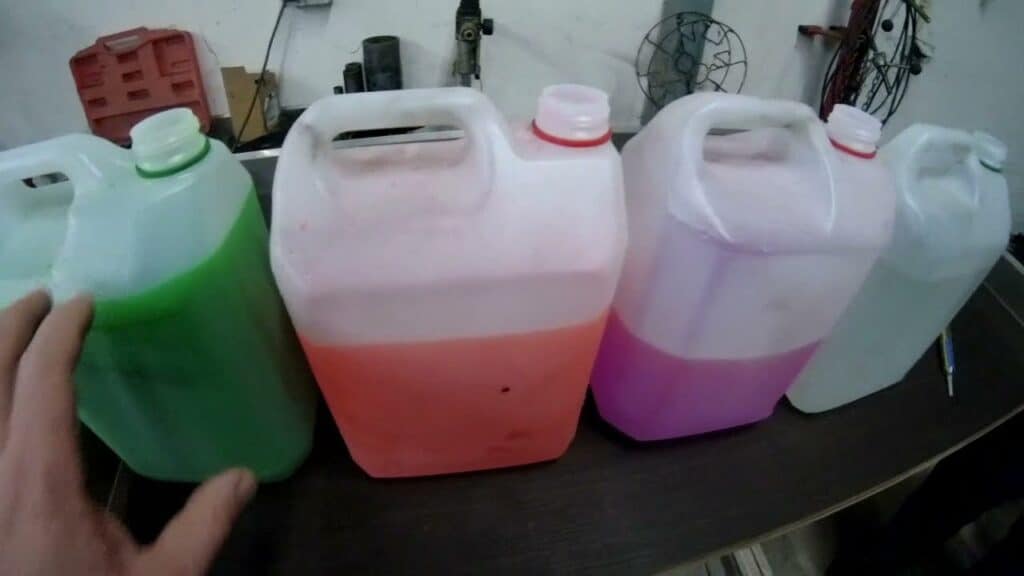Rats are really troublesome especially when they start to destroy your belongings and trash everything else around them.
But there are a few things that you can do to end their party pretty soon. In this article, we are going to show you how to use antifreeze to kill rats.
If you’re wondering whether antifreeze can kill rats, the answer is yes. When rats consume antifreeze, it rapidly becomes lethal as it obstructs their kidneys. Ethylene glycol, commonly known as antifreeze, is highly toxic, making it a formidable weapon against these rodents.
What Will You Need to Kill Rats With Antifreeze?

This is very easy to do, you only need:
- An empty bottle
- Pair of scissors
- Antifreeze solution
How to Kill Rats With Antifreeze?
1 – Grab an empty bottle and make a small round hole with some scissors in it, just enough for a rat to enter. Cut the hole on the side and a little above the bottom.
2 – Then, pour some antifreeze coolant inside of it. It doesn’t matter which one it is, as long as it smells good it will work.
3 – Place the bottle strategically in the area where you have seen signs of rat activity, make sure to keep it off limits for pets and small children.
Many rats fall for these traps if they are not used to them, once they’ll taste the antifreeze liquid they will end up dying in a matter of hours or days.
How Long Does It Take a Rat to Die from Antifreeze
The time it takes for a rat to die from antifreeze ingestion can vary depending on several factors, including the concentration of the antifreeze, the size of the rat, and the amount ingested. Here are some key points from the search results:
- Ingestion responses of rats to ethylene glycol-based antifreeze were found to be inversely related to concentration. This means that rats may have different reactions and time to death depending on the concentration of the antifreeze.
- Antifreeze does not kill rats instantly, and it can take a few days for the rat to die. The correct dose of antifreeze causes a slow and potentially painful death for the rat.
- The size of the rat can also affect the time it takes for the antifreeze to take effect. If the rat ate over a teaspoon of antifreeze, it may die within 24 hours. If it didn’t, it will die a little bit later on.
- Variables such as the size of the rat and the amount ingested can affect the time it takes for a rat to die from antifreeze poisoning. On average, it takes about 1 to 3 days for a rat to die from antifreeze poisoning.

Key takeaways:
- You can create an efficient rat poison trap by using an empty bottle and antifreeze solution.
- Keep it away from pets, small children, and other mammals because it is also deadly for them.
Common Questions
Will antifreeze poison rats?
To create a rat trap using antifreeze, carefully craft a small opening in the side of a plastic 2-liter soda bottle, just big enough for a mouse or rat to enter. Next, pour a small amount of antifreeze into the bottom of the bottle. The enticing sweet scent of the antifreeze will attract rodents, and when they consume it, it will prove fatal. Utilizing a bottle as your trap ensures that household pets remain safe and unaffected.
Do mice and rats like antifreeze?
Using Antifreeze for Rodent Control: Placing a small dish of antifreeze can effectively deter mice. Antifreeze has a sweet aroma and taste that can be enticing to mice, as they are drawn to sweet substances and may consume the liquid.
What in antifreeze kills rats?
Antifreeze contains Ethylene Glycol, which is lethal to rats, as well as dogs and cats when ingested in sufficient quantities. It has a sweet taste, making it appealing to potential consumers, but it should be handled with care to prevent unintended ingestion. It’s important to note that if there’s a nearby water source, rodents may avoid consuming it.
Does antifreeze keep rats away?
Antifreeze, due to its sweet scent and flavor, can indeed be attractive to mice, given their preference for sweet substances. They might consume the liquid. Antifreeze is effective for rodent control because it is toxic.
Can you poison mice with antifreeze?
When properly executed, a container filled with antifreeze can indeed be lethal to mice. However, there’s a significant drawback: even if you manage to create a humane trap that won’t endanger your pets or children, once you’ve dealt with the unpleasant chore of emptying a bucket containing deceased, soaked mice, you might still find yourself contending with a mouse infestation in your home.
Does antifreeze kill mice quickly?
Antifreeze operates by blocking the kidneys, causing mice to succumb within a few days. This process is relatively slower compared to certain mouse baits. It’s important to note the risk of cats and dogs potentially ingesting antifreeze, which can lead to illness and, in severe cases, fatalities.
How long does it take for antifreeze to kill something?
It typically takes between 24 to 72 hours for antifreeze poisoning to be lethal. According to the National Oceanic and Atmospheric Administration, just two ounces of antifreeze can be fatal to a dog, one teaspoon to a cat, and two tablespoons can pose a threat to a child. If a person consumes a substantial amount of antifreeze, they can succumb to its effects within 24 to 72 hours.
How do you kill rats and mice with antifreeze?
To create a reliable rat and mouse trap using antifreeze, start by carefully cutting a small hole in the side of a plastic 2-liter soda bottle, ensuring it’s just large enough for these pests to enter. Next, add a small quantity of antifreeze to the bottom of the bottle. The enticing sweet fragrance of the antifreeze will attract rodents, and their consumption of it will ultimately prove fatal. This method also helps in safeguarding your pets, keeping them away from the toxic substance.
Is it illegal to poison animals with antifreeze?
It’s crucial to understand that there’s more at stake than just finances or emotions. Using substances like rat poison, antifreeze, gopher strychnine, or any poison not specifically intended for a particular animal to inadvertently harm pets, neighbor’s pets, or other wildlife is illegal. In many instances, it constitutes a felony offense.
